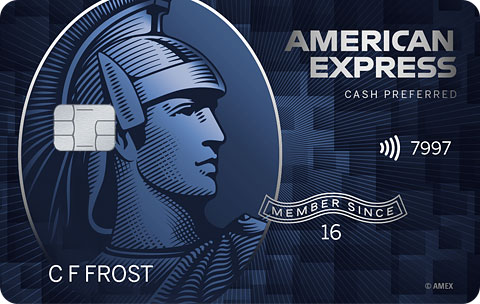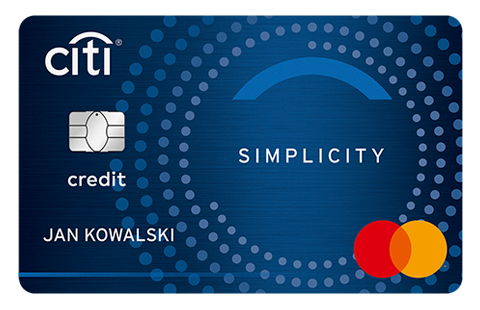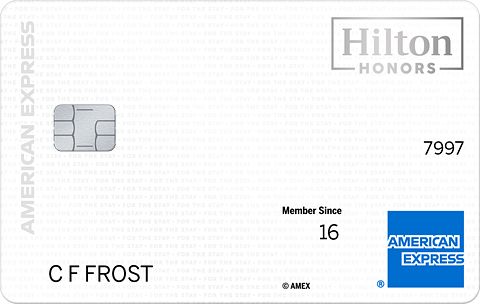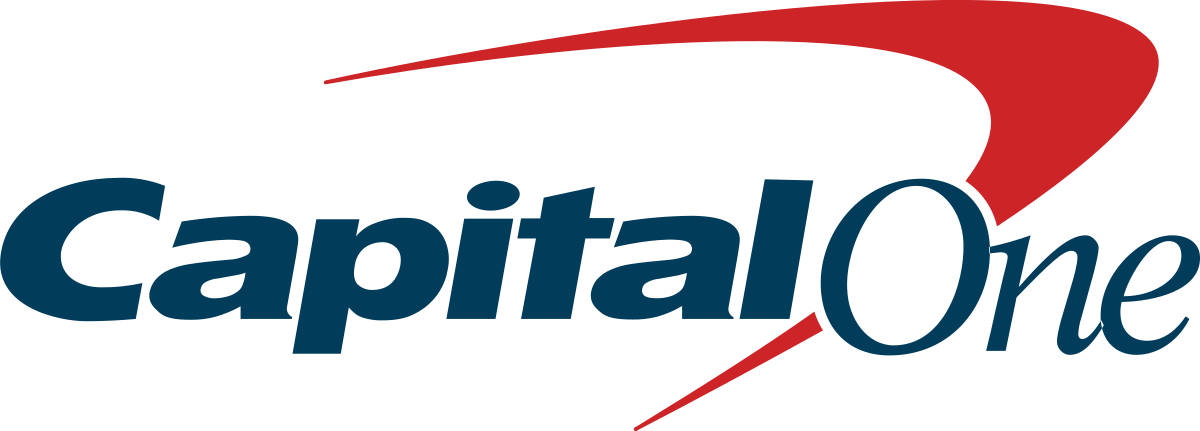- myFICO® Forums
- This 'n' That
- SmorgasBoard
- Re: How Old Are We Getting?
- Subscribe to RSS Feed
- Mark Topic as New
- Mark Topic as Read
- Float this Topic for Current User
- Bookmark
- Subscribe
- Mute
- Printer Friendly Page
How Old Are We Getting?
Is your credit card giving you the perks you want?
Browse credit cards from a variety of issuers to see if there's a better card for you.
- « Previous
- Next »
- Mark as New
- Bookmark
- Subscribe
- Mute
- Subscribe to RSS Feed
- Permalink
- Report Inappropriate Content
Re: How Old Are We Getting?
@CreditAggie wrote:I am 28 (on the cusp of Millennial and Gen Z) and got my first card at 22. Before then, I never thought about credit. I learned about building and responsibly using credit and becoming financially literate on my own through YouTube and these forums. My parents did not teach me about credit. I have made the determination that the majority of Americans are financially illiterate and personal finance should be taught in high school especially since Americans collectively carry over a trillion dollars in revolving credit card debt. I am likely well ahead of my peers when it comes to financial literacy.
We live in a consumption based society built upon capitalism. The intent was always to support individuals who consume, for profit. Today, it's maximum profit. How do you do this? You don't teach anything worthwhile within the schooling system that focuses on real finance, real economics, and real credit or debt. You teach the workerbees just enough in how to work the wrench, but never enough to escape the matrix system.
Multiple weeks in free credit reward vacations.
$X,XXX in bank rewards in only 12 months.
I like FREE...
800+ FICO.
Making all numbers dance on a financial ledger.
Abuse that score responsibility.
- Mark as New
- Bookmark
- Subscribe
- Mute
- Subscribe to RSS Feed
- Permalink
- Report Inappropriate Content
Re: How Old Are We Getting?
@Realist wrote:
@CreditAggie wrote:I am 28 (on the cusp of Millennial and Gen Z) and got my first card at 22. I have made the determination that the majority of Americans are financially illiterate and personal finance should be taught in high school especially since Americans collectively carry over a trillion dollars in revolving credit card debt.
We live in a consumption based society built upon capitalism. The intent was always to support individuals who consume, for profit. Today, it's maximum profit. How do you do this? You teach the workerbees just enough in how to work the wrench, but never enough to escape the matrix system.
You acquess and enable creation of a government by corporations for corporations. All hale the rise of corporate states.
Fico 8: .......EQ 850 TU 850 EX 850
Fico 4 .....:. EQ 809 TU 823 EX 830 EX Fico 98: 842
Fico 8 BC:. EQ 892 TU 900 EX 900
Fico 8 AU:. EQ 887 TU 897 EX 899
Fico 4 BC:. EQ 826 TU 858, EX Fico 98 BC: 870
Fico 4 AU:. EQ 831 TU 872, EX Fico 98 AU: 861
VS 3.0:...... EQ 835 TU 835 EX 835
CBIS: ........EQ LN Auto 940 EQ LN Home 870 TU Auto 902 TU Home 950
- Mark as New
- Bookmark
- Subscribe
- Mute
- Subscribe to RSS Feed
- Permalink
- Report Inappropriate Content
Re: How Old Are We Getting?
schools aren't teaching financial literacy.
Parents are dumping the responsibility of their children to being educated by strangers that don't care about your kids, or the resulting societal decay that is going (and is) to occur.
worst thing you can do for your kid is rely on public education.
most colleges/degrees are an incredible waste of money, borderline criminal imo, with no skills or experience whatsoever typically learned, and student debt so insurmountable they're looking to have the more well off and more responsible pay for.
I'm 29.











Experian [809] TransUnion [823] Equifax [826]
Total Revolving Limits [$224,000]
PenFed Loan: $679/$8,000
- Mark as New
- Bookmark
- Subscribe
- Mute
- Subscribe to RSS Feed
- Permalink
- Report Inappropriate Content
Re: How Old Are We Getting?
@Gregory1776 wrote:schools aren't teaching financial literacy.
Parents are dumping the responsibility of their children to being educated by strangers that don't care about your kids, or the resulting societal decay that is going (and is) to occur.worst thing you can do for your kid is rely on public education.
most colleges/degrees are an incredible waste of money, borderline criminal imo, with no skills or experience whatsoever typically learned, and student debt so insurmountable they're looking to have the more well off and more responsible pay for.
I'm 29.
Not all college is a waste. Some fields require a higher degree. But, we do have a mindset of "I have to go into debt to get this degree" that needs to be changed. And college, for a lot of kids, has become nothing more that an "experience" that they feel like they are entitled to. Similar to summer camp. They take out a bunch of loans, literally screw around and drink for a year or two, and then drop out. The attainment rate of those who start college is atrocious.
The truth is that a ollege degree can be attained with little to no debt IF people are willing to work hard and don't get sucked into what I call "designer colleges". You don't HAVE to go to the most expensive college around. The school name on your diploma is not really that important. There are scholarships out there IF you are willing to humble yourself and go to a different school with a less prestigious name. But people get sucked into the "experience". College should be an investment, not a rite of passage. It needs to be viewed as a stepping stone to a career, not a place to make memories and put notches in your belt.









FICO® 8: 833 (Eq) · 827 (Ex) · 812 (TU)
- Mark as New
- Bookmark
- Subscribe
- Mute
- Subscribe to RSS Feed
- Permalink
- Report Inappropriate Content
Re: How Old Are We Getting?
There are many paths up the mountain, including skilled trades and even college. But, with college, there should always be a plan in place. Navigate with purpose. Never find yourself pursuing a degree in uselessness.
More and more high schools these days are including a technical program into their schedules. Some of these are one class hour per day. Some of the much more advanced options, take place in the 11th and 12th year as a two year program, and involve one half day learning in a real world technical field. The other half of day involves an agreed set of studies with the high school. These fields range from medical, to cosmetic, to business, to robotics, to construction, from automotive repair to engineering, to programing and cybersecurity, and so much more. These programs are excellent introductions to further technical knowledge, or gain initial exposure. In addition, these programs allow a student to earn a free college associate's degree from the local community college. They also allow the student to co-op in the local community during school hours, earning a paycheck, and gaining real world experience should they pursue it. But, most parents either don't know about this, or many don't care. I find it to be an incredible disadvantage not to utilize these services.
So now that the students associates degree can be paid for, what comes next?
Regardless whether a graduating high school student pays their way through an associates, or earns their way through one on the house, there comes a point where they need to identify whether they're in the right field. Some students, can't test well. Some, their grades are great, but not excellent (95% and above excellent). Fields like medical, physical therapy, etc, require certain scoring metrics for testing, along with a certain grade point to be be considered into a program. By law, the schools can only graduate so many per year, so many are wait-listed with a big question mark whether they'll be selected (I was surprised to find how controlled it was). That doesn't bode well when trying to plan for a future, as theoretically you could spend a decade and still never technically qualify. Knowing if you realistically qualify for a program is key. If you deterimine you can't meet the metrics, perhaps an alternate program makes more sense right out of the gate.
Community colleges allow upwards of 80-82 credit hours to transfer over and into a partner university program. Most colleges are on this list. So when you obtain most of your credits through a community college, it doesn't matter when transferring to the superior university. That's the degree you will obtain, in the name of the more prestigious college.
When it comes down to financing, there are a few things to consider to determine that debt. First, FAFSA vs private. Government loans are easy enought to obtain, but quite literally you can have a large number spread across lenders. While rates are good, private aren't bad, with only one loan or much less loans involved. The difference in value was negligible to even matter much to us. However, the key is to choose an interest only plan, at minimum, and start paying on it right away if you can. This prevents the build up of substantial debt when it falls into active repayment after the grace period. Pay something, every month.
For college, there are some that insist it's the only way to go, so we can help them out. Especially with certain fields, it's a requirement and point of entry. I call it the entry fee that must be paid - if you want to go into specific fields. You can obtain a degree is usefulness, or a degree in useless, but I'd recommend useful. One of our candidates, finished their finance degree with low $20k in debt. With their entry fee job (which pays dang well), it could be paid off in months. But, to offset the cost of the loan, they'll instead keep all of their money available to them, and invest in CD's. Rather than owing much, they can offset that debt and owe very little for however long they like. And, they retain control of their capital, and that's the power. They can choose to pay it off too, but on their timeframe. They retain this control and power.
Multiple weeks in free credit reward vacations.
$X,XXX in bank rewards in only 12 months.
I like FREE...
800+ FICO.
Making all numbers dance on a financial ledger.
Abuse that score responsibility.
- Mark as New
- Bookmark
- Subscribe
- Mute
- Subscribe to RSS Feed
- Permalink
- Report Inappropriate Content
Re: How Old Are We Getting?
I work at a University and the students I've encountered are just as clueless as most of the folks I knew back in the day (currently 30yrs old), but I'm not sure how much has really changed as most people don't seem interested in learning. Even my parents whom both went through the conventional Home Economics courses are pretty lackluster when it comes to credit. They can balance a budget and write a check—which is more than most folks these days, but they don't understand any of the components of FICO scores or really what they are.









- Mark as New
- Bookmark
- Subscribe
- Mute
- Subscribe to RSS Feed
- Permalink
- Report Inappropriate Content
Re: How Old Are We Getting?
@Schwartzinator wrote:I work at a University and the students I've encountered are just as clueless as most of the folks I knew back in the day (currently 30yrs old), but I'm not sure how much has really changed as most people don't seem interested in learning. Even my parents whom both went through the conventional Home Economics courses are pretty lackluster when it comes to credit. They can balance a budget and write a check—which is more than most folks these days, but they don't understand any of the components of FICO scores or really what they are.
You're on point with this. Even P3 of ours, who is a finance major, while very intelligent, didn't fully grasp the economic conditions, the prior monetary history of the world, the finer details pertaining to finances, in how money is created, and facilitates throughout the economy. Instead, it's about just going through the motions on how to plug information into a spreadsheet to meet end of month spreadsheets. Paid very well to do this, with benefits in tow. A bit more is involved, but still so much room for ignorance. Fortunately, we were able to remedy this issue. Not everyone gets to do this, especially if their parents aren't yet there. My parents weren't, but I made it a mission to figure out business and finance over a lifetime, and to pass this information down.
Todays economic system is diseased by a financial system that papers over itself. There's no solution in place to fix it, but we continue to watch the current administration and some real asset prices. We wait, we watch, carefully. Meanwhile, you can go to any social media platform and observe that hundreds, thousands, tens and hundreds of thousands of people are getting laid off in todays market. Can't make ends meet, can't find a job. Prices going through the roof, and they don't know what to do. Right, wrong, or indifferent, this isn't random, nor is it a coincidence. There are a number of people that won't hesitate to share, how difficult their life is now. Some might argue they were never educated properly, and these are the ones standing on the train tracks. What can you do, to stand out from everyone else that is doing exactly what you are doing? Envision a world where everyone looks the same. What sets them apart so they can get that job over another?
Tough times are coming. No doubt about that.
Multiple weeks in free credit reward vacations.
$X,XXX in bank rewards in only 12 months.
I like FREE...
800+ FICO.
Making all numbers dance on a financial ledger.
Abuse that score responsibility.




